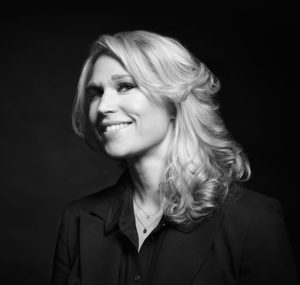TSB chief marketing officer Peter Markey believes markers should all go “above and beyond” to affect societal change that transcends company profits and financials.
Markey was speaking on the My Digital Hero stage at MadFest London 2019, which hosted a series of interviews with heroes from NDA’s My Digital Hero series.
In a session chaired by NDA editor Justin Pearse, Markey name-checked his digital hero as Dan Whites, founder of Ninety Consulting, for his “passion” and integrity. Ninety, a consultancy in the insurance space, gives some 90% of its profits to charity.
“His view is something I would subscribe to: that we have to do more than our jobs. We do a good job and deliver for our customers and our stakeholders but we have to leave a legacy, both financially and for society,” said Markey. “Our impacts should be deeper and wider, we need to go above and beyond.”
In a wide-ranging interview Markey also talked through his career, which has included long stints at the Post Office, MoreThan and Aviva, saying he was lucky and privileged to have been working with brands on launching digital firsts.
“Digital has played a significant role in my career, particularly in the last few years, where we have had to disrupt business — to disrupt our own business.”
The focus should be on creating the most enriching customer experiences in the best ways, he said. For example, at Aviva, they cut the number of questions for a person wanting household insurance down to just a handful, rather than pages.
Why, he asked, when companies had access to Zoopla sales data, for instance, should an insurance company need to ask a householder the number of bedrooms, area, age of build and so on.
He cautioned that brands should never allow tech ‘innovation’ to overtake the business and customer objectives, of ignoring the tried and tested principles of marketing.
“One of the dangers in banking today is the race to have the best app,” said Markey. “That’s a race to commoditisation. What else have you got, because if it can be copied then that’s a worry.”
An example, he pointed out, was the ‘freeze your card’ function introduced by Monzo. Barclays copied the feature and launched a huge marketing campaign around it — meaning that most people associate the feature with the high street bank and not the challenger.
“All the innovation is brilliant but don’t forget the basics of marketing,” he cautioned, adding that he had “huge respect” for that new breed of challenger brands.
For TSB, though, its physical footprint was a big differentiator, particularly outside of the big cities, for older people and for certain products.
“We are TSB. We need to be the best version we can be and meet customer needs through all the channels that matter. There is a huge appetite for mobile and digital. But the role of branches for things like mortgages is huge.
“[Digital] customer experience will get much, much better but we are also doubling down on physical and human interactions.”












